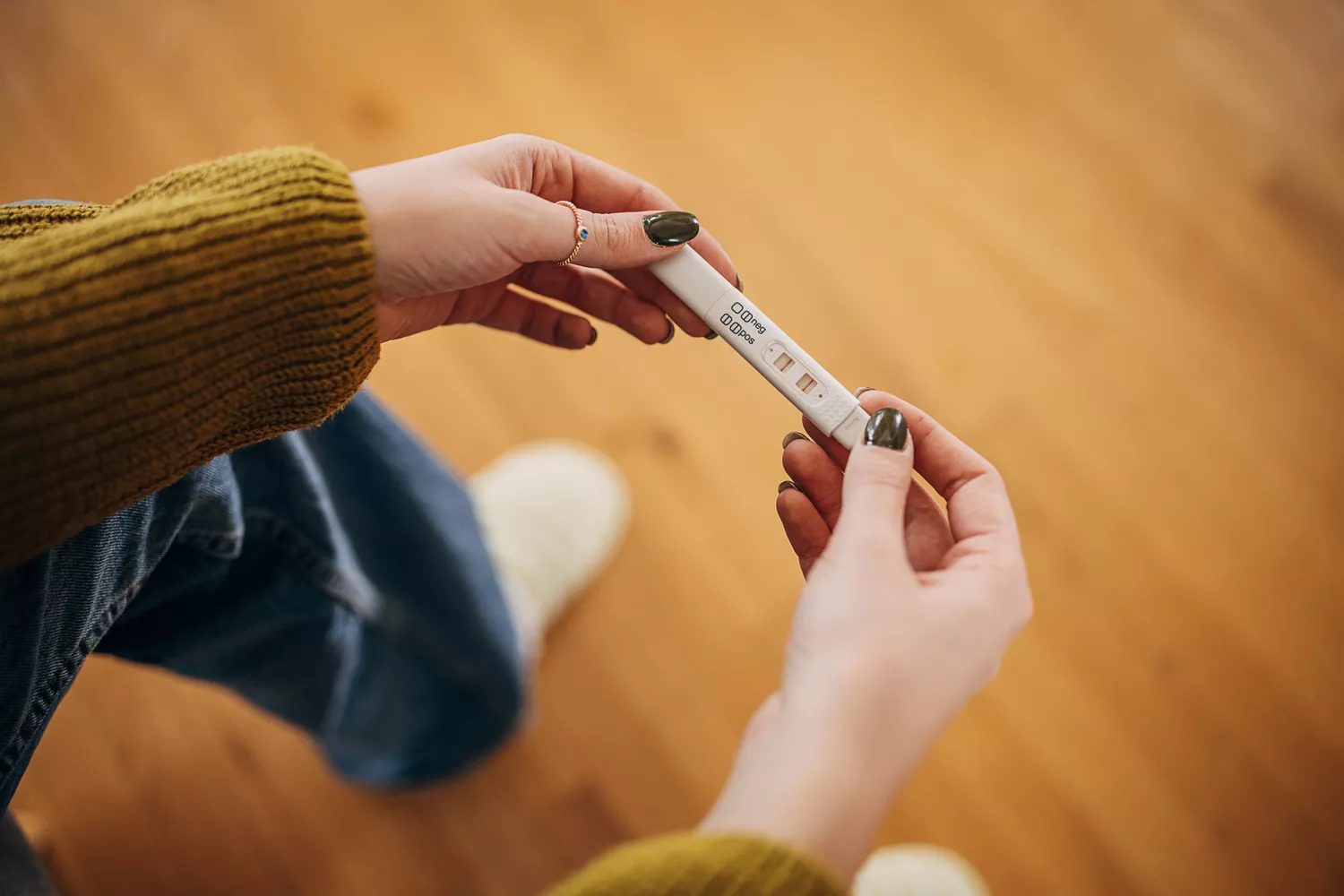What causes watery vaginal discharge?


You may be paying close attention to your vaginal drainage, whether you’re trying for pregnancy, using a family planning method, or just noticing changes in your body. If you have a watery discharge, it can be confusing. You are not alone. In the U.S. alone, vaginal discharge is the leading cause of gynecological complaints.
It is difficult to differentiate between the vaginal discharges that occur before or after your period and the changes that accompany early pregnancies. If you’re wondering if your watery spit is normal or a sign that you’re pregnant, we have you covered.
Continue reading to find out more about what watery vaginal drainage could mean for you.
What is Vaginal Discharge (Vaginal discharge)?
Vaginal discharge is a small amount of fluid produced by the glands in your cervix and vagina. It’s designed for old cells to be carried out of the body. Discharge is what keeps your vagina healthy and clean. 2 The amount of discharge can vary from person to person.
“Vaginal discharge is an important function of the female reproductive system,” says Darren Salinger M.D. a board certified OB-GYN at KIDZ Medical Services. The network of doctors provides obstetrical care, neonatal care, and pediatrics. The fluid produced by the glands in the cervix and vagina carries dead cells and bacteria away. This fluid helps to keep the vagina clean, and prevents infection.
Four annoying symptoms that are signs of a healthy pregnancy
What should vaginal discharge look like?
The normal vaginal discharge, also known as physiological discharge, is usually clear, odorless and can be whitish, yellowish or mucusy depending on the hormonal changes in your body. During your reproductive years, you excrete between 1 and 4 milliliters per day.
Lauren Demosthenes M.D. is an OB/GYN, senior medical director at Babyscripts and a virtual platform for managing obstetrics. “For instance, just before and while ovulation, it may be clearer and waterier, but then become thicker and stickier after ovulation as progesterone increases. It is normal to have a mild odor.
You may also notice that your discharge is more visible at certain times. 4
What causes watery vaginal discharge?
This can also happen during menopause. Changes in your discharge may occur when the balance of healthy bacteria is disturbed in your vagina.
Douching, feminine products, bubble baths and soaps can all upset your vaginal balance. The healthy bacteria in your vagina can also be affected by antibiotics, an infection or diabetes.
“Watery discharges are usually nothing to worry about and are a sign that the vagina is healthy,” explains Dr. Salinger. It can indicate that the vagina is cleansing itself and it can also indicate ovulation. It may be an infection, or another condition, if it is accompanied by other symptoms such as itchiness or soreness.
That said, in older people, watery vaginal discharge can sometimes–though rarely–be a sign of cancer, adds Dr. Salinger.5 If you are in menopause or post-menopausal, you may want to be evaluated by a health care provider to rule out the possibility–especially if your discharge has changed in some way.
Can Watery Discharge Indicate a Pregnancy?
Researchers say that it’s one of the earliest signs of pregnancy. Researchers say it is one of the first signs of pregnancy. It increases in volume and lasts throughout all three trimesters.
While your leukorrhea production does increase while expecting, it’s usually not noticeable until around your a data-component=”link” data-ordinal=”1″ data source=”inlineLink” and type=”internalLink”. Leukorrhea can increase during pregnancy, but it is usually not noticed until after you have missed your period or shown other signs of being pregnant. can be used to test for pregnancy if you are pregnant or have had sex with no birth control, and missed your period.
When it occurs later in pregnancy, a watery discharge may indicate a problem. “A watery discharge during pregnancy–especially after 20 weeks or so–could be a sign of leaking amniotic fluid,” says Dr. Demosthenes. It never hurts for you to speak to your doctor about any symptoms that concern you.
Vaginal discharges can be classified into several types.
Vaginal secretions can take on many different forms and appear in different ways. Most of the time these changes are normal. Sometimes, the vaginal discharge is caused by an infection or disease. You can usually identify abnormal discharges by their color and smell. This condition may also be accompanied with itching, irritation and pelvic pain. 7
“Yellow discharge with itching can sometimes be trichomonas, and white or greenish a data-component=”link” data-ordinal=”1″ data source=”inlineLink” and data type=”internalLink”>cottage cheese discharge can be yeast. The yellow discharge that itches can sometimes be caused by trichomonas. White or greenish Cottage Cheese discharge is often yeast. A discharge that contains blood can be an indication of a pelvic or uterine infection.
Researchers have found that pathological vaginal discharge is most commonly caused by infection. About 70% of cases are caused by bacterial infection or trichomoniasis. Researchers have found that bacterial vaginosis, which accounts for 50% of all infections, is the most common.
You may have noticed different types of vaginal discharge. Here are some that you should be aware of, as they could indicate that there is something wrong. 4
- A white discharge is normal at the start and end of a cycle. If you have itching and thick white discharge it may be a sign of a yeast infection.
- A clear and stretching discharge: The discharge of this type is classified as fertile mucilage, and may be an ovulation sign.
- Yellow and green discharges:A yellow or green discharge can indicate an infection. This is especially true if the discharge is thick, clumpy or smells bad.
- Brown discharge: Right after your period, you may notice brown discharge. It is usually a small amount menstrual blood.
- Spotting blood or red discharge: You may get spotting in the middle of your period or at ovulation. Early in pregnancy you may also have spotting, or a brownish-colored discharge, around the time of your normal period. If you notice irregular spotting in the middle of your cycle, you may be pregnant. Consult with your doctor or take an at-home pregnancy test.
Dr. Demosthenes says that even if you don’t have any discharge, it is possible to still be infected with gonorrhea and chlamydia. Speak to your doctor about testing and screening if you think you may have a sexually transmitted infection (STI).
How to know if you’re trying to get pregnant?
What to do when you need to contact a health care provider
Dr. Salinger says that while watery discharges are usually not a cause for concern, you should contact your doctor if there are any symptoms. For example, if the discharge causes itching, irritation or burning, then see a physician. If you notice a change in the appearance of your discharge, an odor that persists for more than a week, or if you experience pain during sexual activity, then it’s time to talk.
Takeaway:
It’s normal for your body to produce watery discharge. This is not usually cause for alarm. If you have any of these symptoms, it’s best to consult an OB/GYN.
- You have a fever, or you feel pain in the abdomen or pelvis
- You may be suffering from a sexually transmitted infection (STI) or you are worried that you might have one
- Changes in your discharge’s amount, color, smell, or consistency
- You may notice itching, swelling, or redness in the genital region.
- Do you think your symptoms may be linked to a drug that you are taking?
- After one week of home treatment, symptoms worsen
- You may have blisters or sores in your vaginal or vulva
- Burning urination
Remember that watery discharges are a fairly common occurrence and usually not a cause for alarm. Pay attention to your own normal. You should talk to your doctor if you notice your discharge has changed in appearance or smell. You should contact a doctor immediately if you are pregnant and suspect that you may be leaking amniotic liquid or that your fluid is about to rupture.








